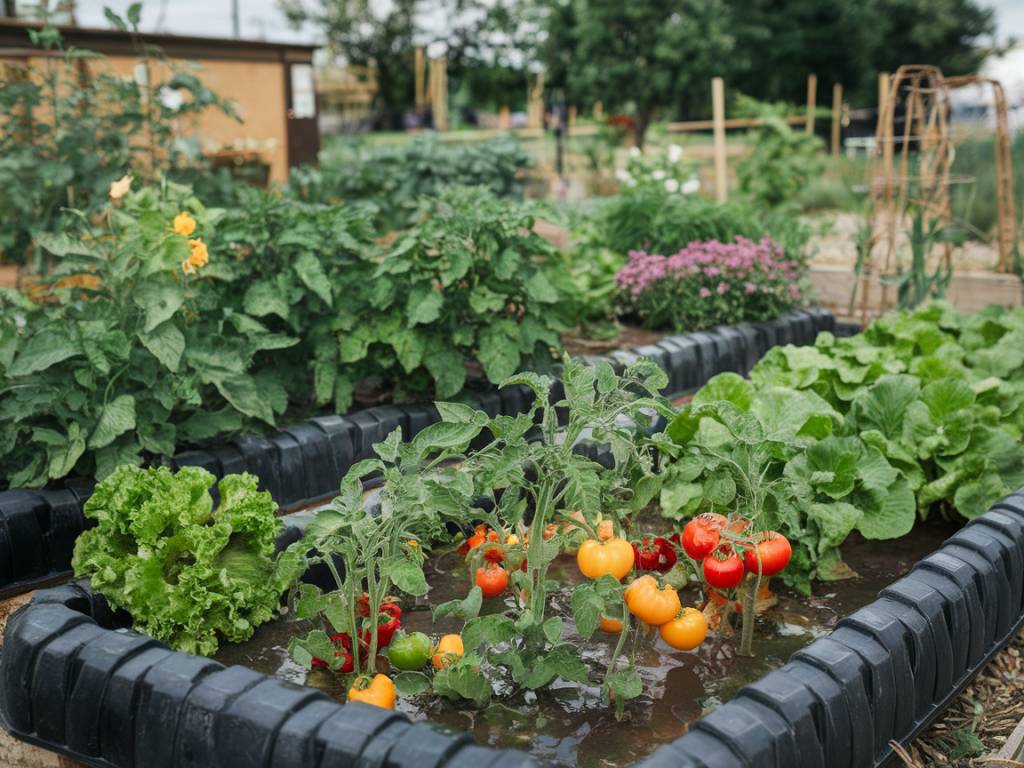As a natural gardener inspired by permaculture practices, I’ve always been fascinated by sustainable and effective ways to nourish my garden. One veritable goldmine many people overlook is something we produce daily: urine. Yes, that’s right—our own urine can be a potent and eco-friendly fertilizer for our gardens. Let’s delve into the science behind using urine to enrich our garden soil and promote plant growth.
The Nutrient Composition of Urine
Human urine is packed with essential nutrients that plants need to thrive. Primarily, it contains nitrogen, phosphorus, and potassium—often referred to as the N-P-K ratio in commercial fertilizers. Let’s break down why these nutrients are critical:
- Nitrogen (N): Urine is particularly high in nitrogen, which is vital for leaf and stem growth.
- Phosphorus (P): This element is crucial for root development and flower formation.
- Potassium (K): Essential for overall plant health, potassium regulates water and nutrient movement within the plant.
It’s interesting to note that nitrogen in urine is in a soluble form, making it immediately available for plant absorption. This quick uptake can lead to more vigorous plant growth when compared to other organic fertilizers.
Safety and Hygiene Concerns
Understandably, many people are concerned about the safety of using urine in their gardens. Fresh urine from a healthy individual is typically sterile and free from harmful pathogens. However, if left standing, it can become a breeding ground for bacteria. Here are some best practices for ensuring the safe use of urine as fertilizer:
- Use fresh urine within 24 hours.
- Ensure that the person providing the urine is free from infections or diseases that could be transmitted through bodily fluids.
- If you’re concerned, you can dilute the urine with water (at a ratio of about 1:10) to make it safer and reduce the risk of any odor.
Following these guidelines will help mitigate any potential risks and make your garden both sustainable and safe.
Application Techniques
Using urine as a fertilizer isn’t as simple as pouring it directly onto plants. Here are some methods I’ve found effective:
- Direct Soil Application: Dilute urine with water (1:10 ratio) and pour it directly at the base of the plants. This method works especially well for nitrogen-loving vegetables like corn, spinach, and lettuce.
- Compost Activation: Urine can serve as an excellent compost activator. Adding it to your compost heap helps speed up the decomposition process, resulting in richer compost.
- Foliar Spray: For an even quicker nutrient uptake, dilute urine more generously (1:20 ratio) and use it as a foliar spray. Apply it in the early morning or late afternoon to avoid leaf burn.
Whichever method you choose, make sure to rotate the areas where you apply urine to prevent nutrient overload in any one part of your garden.
Environmental Impact and Sustainability
One of the most satisfying aspects of using urine as a fertilizer is its positive impact on the environment. Here’s why:
- Reduced Chemical Use: Traditional fertilizers often contain chemicals that can leach into waterways, causing environmental harm. Urine is natural and biodegradable, posing no such risks.
- Water Conservation: By using urine, you’re recycling a waste product that would otherwise be flushed away, saving a considerable amount of water.
- Lower Carbon Footprint: Producing commercial fertilizers generates greenhouse gases. Using urine reduces the demand for these products, lowering your garden’s carbon footprint.
If more people embraced this practice, we could significantly reduce the environmental impact of gardening and agriculture.
Scientific Studies Supporting Urine Fertilization
A host of scientific studies supports the benefits of using urine as a fertilizer:
- Rich Nutrient Content: A study published in “Agricultural Water Management” found that urine contains levels of essential nutrients comparable to chemical fertilizers, making it a highly effective option.
- Enhanced Plant Growth: Research presented in “Ecological Engineering” showed that plants fertilized with urine had enhanced growth rates and improved overall health.
- Sustainable and Cost-effective: The Journal of Environmental Management highlighted that urine fertilization not only cuts costs but also uses resources more efficiently compared to conventional methods.
These findings strengthen the case for incorporating urine into sustainable gardening practices. Additionally, studies indicate that urine fertilization doesn’t negatively impact soil health or plant safety, further validating its use.
Common Misconceptions
I often encounter skepticism when I talk about using urine in the garden. Let’s dispel some common misconceptions:
- “It will make my garden smell bad.” Fresh urine, when diluted, has little to no smell. Any odor quickly dissipates as it gets absorbed into the soil.
- “It’s dirty and unhygienic.” When used correctly, urine is a sterile and safe fertilizer. Following proper hygiene practices ensures that it’s sanitary.
- “It’s only good for greenery.” While urine is great for leafy greens, it also benefits flowering plants and root vegetables by supplying essential nutrients.
Understanding the science and correct usage practices can make all the difference in successfully using urine in your garden.
Personal Experiences and Observations
Over the years, I’ve applied urine fertilization techniques in various parts of my garden. My vegetable patch, in particular, has benefited immensely. I’ve seen increased yields in spinach, kale, and tomatoes. The flowers in my garden beds also appear more vibrant and lush.
I always ensure that I monitor soil health by rotating the areas where I apply the urine solution. This practice prevents nutrient overload and keeps the soil balanced. Additionally, by integrating urine with other organic practices like composting and mulching, I’ve created a holistic approach that keeps my garden thriving year-round.
Using urine as a fertilizer draws us closer to a more sustainable and natural way of gardening. It aligns perfectly with permaculture principles, encouraging us to utilize what we have and minimize waste. By embracing this method, we can contribute to a healthier environment and enjoy the rewarding experience of nurturing our gardens in an eco-friendly manner.
Happy gardening!
Samanta
